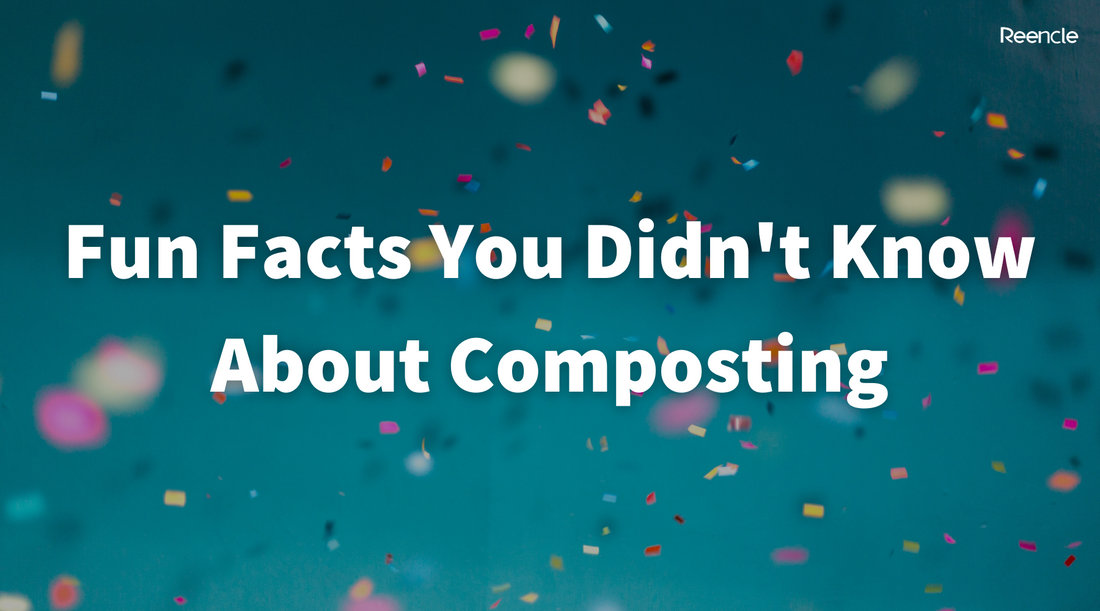Composting is a natural process that transforms organic waste into nutrient-rich soil amendments. While it may seem like a simple and straightforward concept, composting harbours a wealth of fascinating trivia and fun facts.
Composting may seem cut and dry, but it’s far from that. Composting does more than help the environment and reduce food waste; it also makes for some very entertaining conversations!
In this blog post, we will delve into three intriguing topics: compost tea, composting in space, and ancient composting techniques. So, grab your gardening gloves and let's dig into the world of composting!

Compost Tea
Compost tea is a nutrient-rich liquid fertilizer created by steeping compost in water. This organic elixir provides plants with a boost of beneficial microorganisms, nutrients, and enzymes. Here are some interesting tidbits about compost tea:
a) Liquid Gold for Plants: Compost tea is often referred to as "liquid gold" due to its remarkable benefits for plant health and growth. It helps suppress diseases, enhances soil fertility, and improves nutrient uptake, leading to healthier and more productive plants.
b) Brewing Techniques: Compost tea can be made using various brewing techniques. Aerated compost tea involves adding oxygen to the mixture, promoting the growth of aerobic bacteria. Non-aerated compost tea, on the other hand, is brewed without additional oxygen and is commonly used as a foliar spray.
c) Application Methods: Compost tea can be applied to plants by drenching the soil around the roots or as a foliar spray onto the leaves. This versatile fertilizer is suitable for both indoor and outdoor plants, making it a valuable tool for gardeners and farmers alike.

Composting in Space
Composting is not limited to Earth's soil; it has also found its way into outer space. As scientists explore the possibilities of sustaining life beyond our planet, composting plays a crucial role. Here are some intriguing facts about composting in space:
a) Closed-Loop Systems: Composting in space is essential for creating closed-loop systems, where waste is recycled and reused. Astronauts on the International Space Station (ISS) use specialized composting toilets that turn human waste into fertilizer for plants grown on board.
b) Onboard Food Production: Composting enables the cultivation of food in space. The nutrient-rich compost generated from waste materials helps nourish plants, allowing astronauts to grow fresh produce during long-duration space missions.
c) Microgravity Challenges: Composting in microgravity poses unique challenges. Without the force of gravity, compost piles don't naturally settle and decompose. Scientists are continually researching innovative composting methods, such as using mechanical agitation and controlled environments, to overcome these obstacles.

Ancient Composting Techniques
While modern composting techniques have evolved over time, the practice itself has ancient origins. Our ancestors recognized the value of harnessing the power of decomposition to improve agricultural productivity. Here are some intriguing facts about ancient composting techniques:
a) The Indus Valley Civilization: One of the oldest documented instances of composting dates back to the Indus Valley Civilization (2500 BCE). Archaeological evidence suggests that they used composting to enhance soil fertility and agricultural yields.
b) The Han Dynasty of China: In ancient China, during the Han Dynasty (202 BCE - 220 CE), farmers developed a sophisticated composting system known as the "San Liao Method." This method involved mixing animal manure, plant waste, and soil to create nutrient-rich compost.
c) Roman Villa Gardens: The Romans were known for their advanced agricultural practices, including composting. In the villa gardens, they employed various composting techniques, such as burying food waste, animal manure, and plant residues to enrich the soil.

We hope that this shows you that composting is not all cut-and-dry! There are so many interesting aspects to be delved into with the practice of composting. We also hope this makes you realize how fun and exciting being a part of the composting & food waste reduction movement is. We're not the first people to do it and we're certainly not the most interesting composters, but we hope you join us in our own fight against food waste!
If you'd like to join Reencle and own your very own indoor composter, you can save RM600 on your Reencle pre-order today when you sign up for our newsletter at www.reencle.my. Don’t forget to check your email for an exclusive discount code and apply this code at checkout to redeem your RM600 discount.
If you have any questions, please feel free to reach out to us on Instagram or Facebook and we’d be happy to help.

